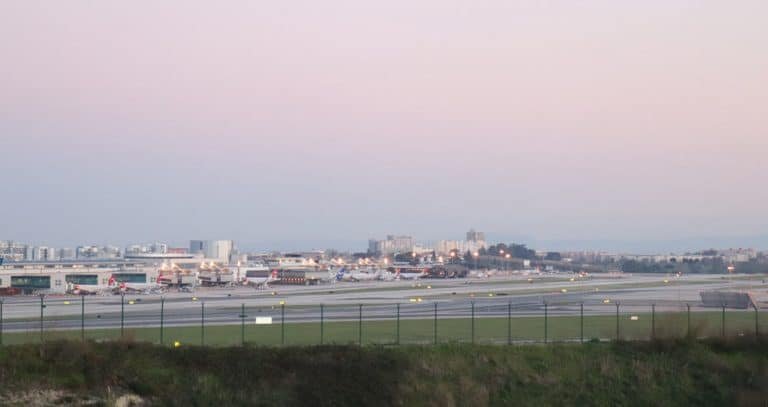In this second part about the changes in Lisbon I want to talk about something that is not visible. Or rather, it is. But you don't feel it, nor do you suddenly see it like that. In the wave of changes in Lisbon there is something in the air that I want to tell you about and that is what catches my attention the most. A more subtle and less noticeable aspect for those who live outside Portugal.

It's not the Lisbon of pasteis de nata, Torre de Belém or Chiado. It's something different, as the French say, a “je ne sais quoi” that is in the air and felt everywhere. Little by little Lisbon started to attract more tourists, it's true, but that's not it. It was a notorious phenomenon because, being a more peripheral city, it had practically been removed from almost everything. But it's another feeling that, in my opinion, changed almost everything. When I was a child I sometimes said: “but why doesn’t Portugal get at least one thing in life?” I think that was the feeling of the Portuguese people of my generation. After a 40-year dictatorship, after successive governments, crises and more economic crises, it was good to be Portuguese, but there was no patriotic feeling. People lived well here, but there was a widespread idea that it was always better outside. That was the order of thought at the time. But from the beginning of this decade foreigners started to arrive, in fact they were already coming but they stayed in the Algarve and it was the beach that dominated everything. Portugal = beach. This was it. But little by little things started to change. Slowly, but at a steady pace as they say here. Prices were an important factor because Lisbon is still more accessible than other cities, low-cost flights provided vital help as well as the possibility of a new type of accommodation that was cheaper and more available (Airbnb). Lisbon was beginning to join the ranks of the most popular cities in Europe, but it was the feeling “that abroad was better than here” that also began to change in our minds. Now it was more like “here is better than out there and we always knew that.”

The explosion
It wasn't sudden, but there were several explosions, I would say. Tourists started to come, but I think the work first fell on the Portugal Tourism who knew how to sell the country well abroad. Lisbon was beginning to make itself known by winning some awards at the “World Travel Awards” event. The previous government also started with the golden visas, a way of guaranteeing residence to wealthy foreigners outside Europe in exchange for purchasing housing in Portuguese territory, normally houses costing one million euros or more. Still in this wave, tax benefits attracted mainly French and German people to buy a house in Portugal. Tourists continued to come for the sun, food, beach and monuments, but now there were other foreigners who lived here permanently – Chinese, French, Brazilians and English especially. There were more and more Erasmus students (university exchange program in Europe) too. Portugal suddenly began to gain a new feeling, also helped by the achievements in the Euro football championship (we finally won after coming second in 2004), Web Summit (two editions of the biggest technological event in the world have already been held) and we even won the Euro Song Festival! Suddenly Portugal was on the crest of the wave. Literally. Even the city of Nazaré was visible with the biggest waves in the world and a surfing championship that was turning a blind eye outside. In the midst of this whirlwind, some movie stars (and others) arrive to live here, but it is Madonna who really stands out when she moves to Lisbon. Lisbon and Portugal were on everyone's lips. Suddenly it was even better to be Portuguese, I confess. We were in all of them and we won here and there. Google is coming here and not to be left behind, Amazon also wants to come. The famous English chef Jammie Oliver already has a restaurant in Príncipe Real and the Portuguese chef José Avillez was the big winner of the Grand Prix de L'Art de La Cuisine, one of the most prestigious culinary awards in the world. Music festivals already attract people just to come to these concerts, but there are people who come to do completely different things in the interior of Portugal, stroll in the tranquility of the Alentejo or be dazzled by the beauty of the Douro valley.
The effervescence of Lisbon
In short, we went from almost nothing to a full plate! The Lisbon that was barely heard of is in fashion and goes hand in hand with cities like Berlin or Barcelona. Political stability (the most unlikely government in the world is already three years old after all) and interesting economic growth attracted tourists who spread the word and made many others come. Americans for example. A CNN and the Condé Nast Travel It seems like they really like us. In England the The Guardian also. More recently, the Chinese also arrived with a direct flight between Lisbon and Beijing.

The custard tarts and monuments still delight tourists, but I think this is effervescence that there is now what has changed most here. Lisbon has become synonymous with a place that encourages creativity, is a “hub” for start-ups and seems to be attracting people from all over the world who come in search of that aroma of change that can be felt here. Lisbon is more cosmopolitan, more open to the world, but at the same time it still retains those things that made it attractive in the first place. Of course, some things have changed, but in essence I think what has changed most is this flavor of freedom and this sea of “open-minded people” that are out there. This is fantastic!